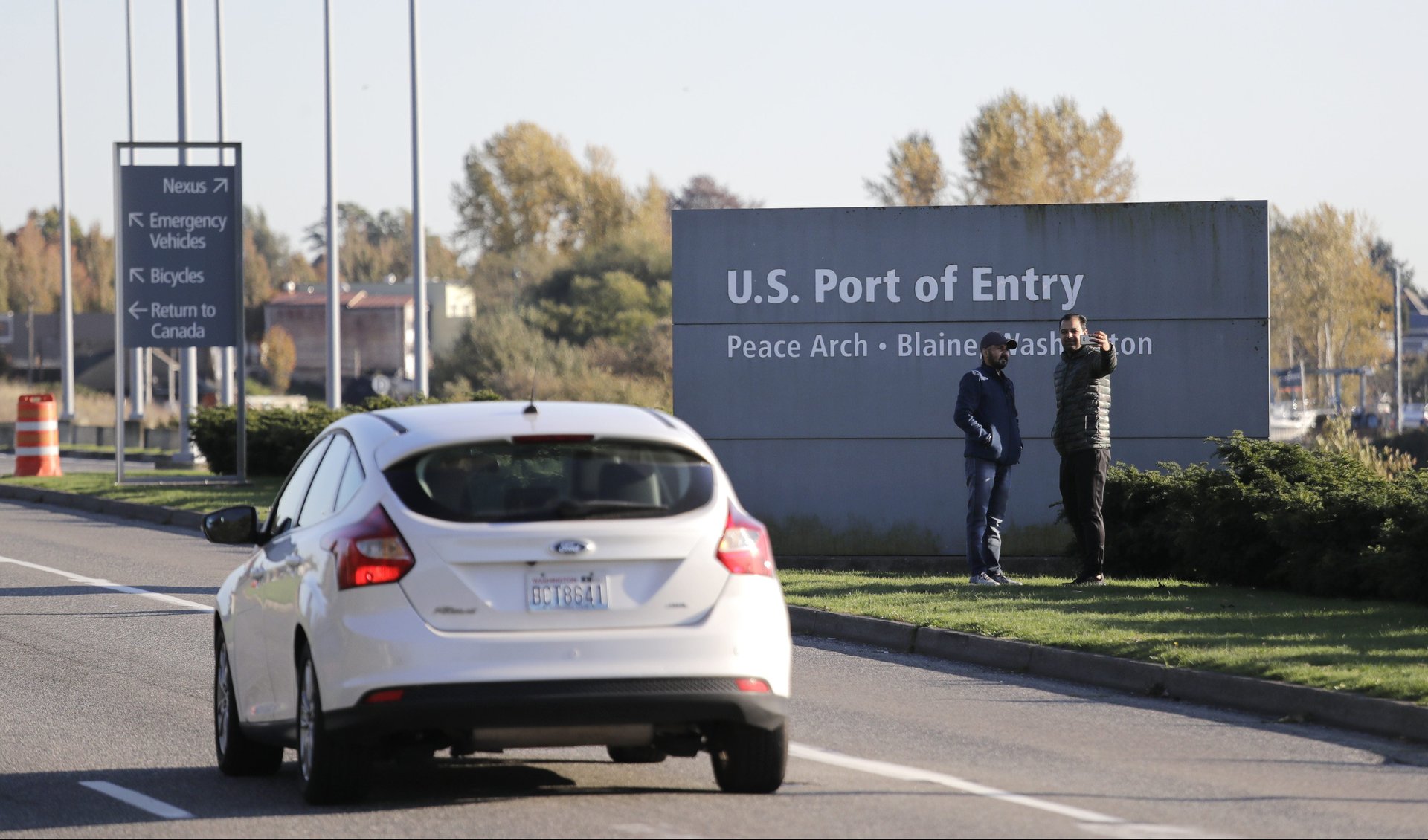An Iranian-American describes being held by officials at the US-Canada border
American citizens of Iranian descent were detained over the weekend at the US-Canada border near Blaine, Washington, according to a woman who was among those held by US Customs and Border Protection (CBP).


American citizens of Iranian descent were detained over the weekend at the US-Canada border near Blaine, Washington, according to a woman who was among those held by US Customs and Border Protection (CBP).
Mona Zabihian, a US citizen born in Iran, told Quartz in an email that she and four other Iranians, all of whom are US citizens, drove across the border Saturday evening to see a Persian pop duo play at a performing arts center in Vancouver, British Columbia. They entered Canada via the Blaine, WA port of entry around 5:30 pm, without incident.
After the concert, Zabihian, 27, and the others headed back to the Blaine crossing. They arrived at the US inspection lanes shortly before 11 pm. After answering the usual questions, which Zabihian said she thought they had done satisfactorily, the group was sent inside for further screening.
“After waiting for about what seemed like an hour, they called me and questioned me,” said Zabihian, who connected with Quartz through a staffer at the National Iranian American Council. “They wanted to know the names of all my immediate family members, their birthdates, their location, and their occupation. They asked when was the last time I visited Iran.”
Zabihian said CBP only questioned the three other members of her group who were actually born in Iran, and didn’t seem interested in her boyfriend, an Iranian-American born in Germany.
“Border security staff were friendly,” she said. “They too were not happy with orders to detain.”
Her boyfriend struck up a conversation with a friendly CBP officer, who Zabihian said told him that the order was not a nationwide policy, but rather one limited only to Washington State.
After waiting for five more hours, Zabihian and her group were finally released. They were luckier than others, some of whom were held for 11 hours or longer, said Zabihian.
Zabihian was one of more than five dozen Iranians and Iranian-Americans the Council on American-Islamic Relations (CAIR), a Muslim civil rights and advocacy organization, said were wrongfully targeted, or in some instances, even turned back by CBP at the border crossing in Blaine over the past two days.
CBP, however, disputes earlier reports of nationwide mass detentions or that its officers have been directed by the Department of Homeland Security (DHS) to detain and question anyone of Iranian heritage that appears “adversarial.”
“Social media posts that CBP is detaining Iranian-Americans and refusing their entry into the U.S. because of their country of origin are false,” a CBP spokesperson said in statement. “Reports that DHS/CBP has issued a related directive are also false.”
A CBP official with knowledge of the situation explained that, based on the “current threat environment,” the agency is “operating with an enhanced posture at its ports of entry to safeguard our national security and protect the America people while simultaneously protecting the civil rights and liberties of everyone.”
CAIR said those with links to Iran had their passports confiscated, were asked about their political views and allegiances, and what they studied in college.
“These reports are extremely troubling and potentially constitute illegal detentions of United States citizens,” Masih Fouladi, executive director of CAIR Washington, said in a statement. “We are working to verify reports of a broad nationwide directive to detain Iranian-Americans at ports of entry, so that we can provide community members with accurate travel guidance.”
Zabihian, who works in healthcare information technology in Issaquah, Washington, says a large number of Iranian-Americans were held at the Blaine border.
“Amongst us anxiously waiting were children and pregnant women,” she said, adding that the facility had only one bathroom for everyone to share. “There wasn’t enough seats for everyone so some were sitting on the ground.”
The border officers were “understanding of this horrible situation,” Zabihian reiterated, and emphasized that CBP staff “did their best to address the sheer volume of Iranian-born US citizens that were being detained.”
Still, she said, “US citizens should not have been subjected to this regardless of where they were born.”